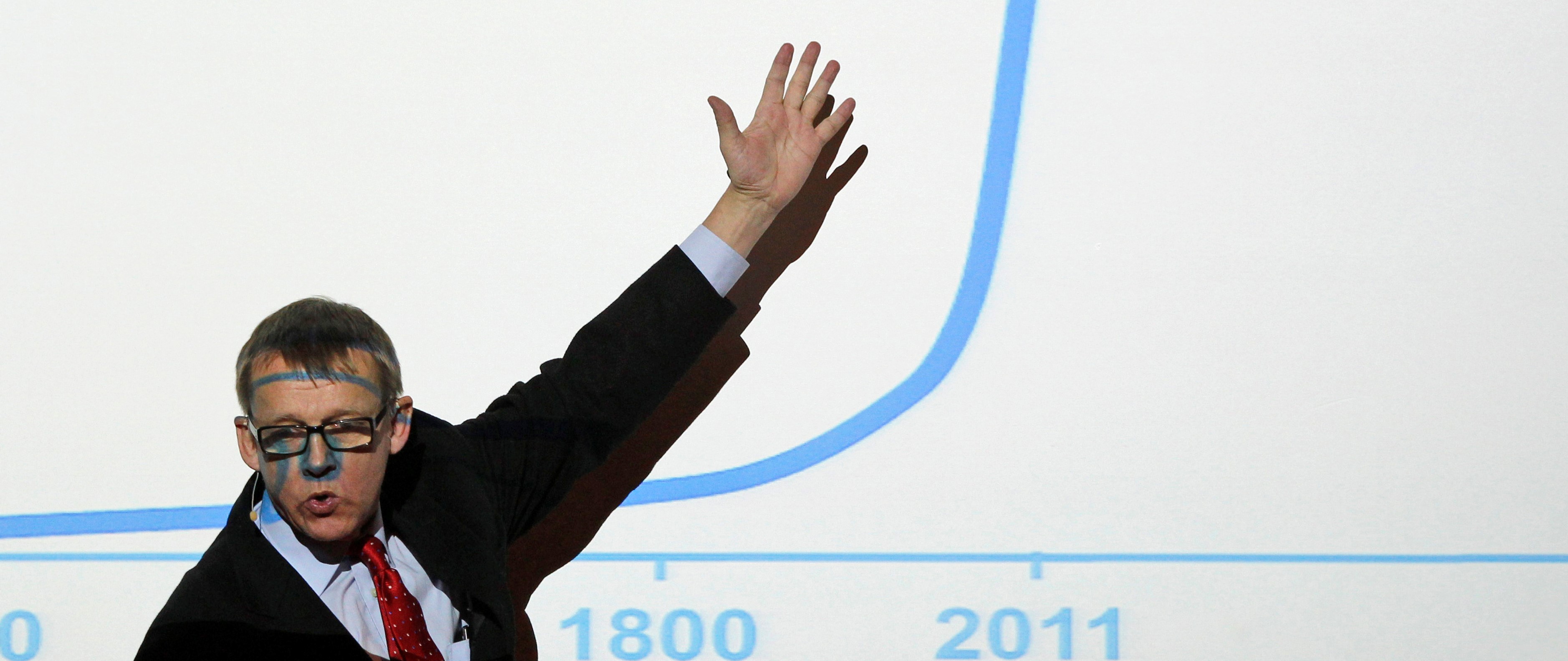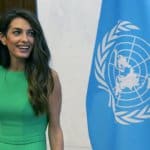
Hans Rosling, the Swedish professor of international health and the statistician who brought hard facts and data to life, has died at age 68, The Gapminder Foundation announced.
Calling himself an “edutainer”, Rosling used everyday objects as well as sophisticated data visualisation tools to explain big, difficult concepts like poverty, global inequality, disease, climate change.
In one TED talk in Cannes, he chose to use bright coloured IKEA boxes and flip flops – what he called his “analog teaching technology” – to dispel myths about the demographics of the West and the developing world.
In another, the professor at Karolinska Institute made excel sheets move and pop in colour to show how fertility rates had changed since the 1960s. He also cheekily compared the results of Swedish students who took his pre-test to the probable result of chimpanzees taking the same.
His witty presentations and charming personality had captured the attention and hearts worldwide, like no other statistician have.
In a statement, Gapminder said Rosling died on Tuesday, a year after being diagnosed with pancreatic cancer.
Rosling is one of the co-founders of Gapminder, together with Ambassador Gun-Britt Andersson, Professor Christer Gunnarsson of Lund University, Professor Bo Sundgren of Stockholm School of Economics and Professor Hans Wigzell of Karolinska Institute.
The co-founders said that they would continue to fight for “his dream of a fact-based worldview”.
Hans Rosling was a young guest student in India when he first realized that Asia had all the capacities to… http://t.co/SbAPSu2oIb
— TEDxIIMRohtak (@TEDxIIMRohtak) August 15, 2015
A big loss to education
Rosling had lived an illustrious life with a career dedicated to academia and public service all over the world.
Born in Sweden in 1948, Rosling studied statistics and medicine at Uppsala University and then public health at St. John’s Medical College in Bangalore, India. Then, as a young licensed physician, he served in Mozambique and Democratic Republic of Congo in the 70s and 80s.
The next two decades saw Rosling studying outbreaks of konzo, a paralytic disease, in remote rural ares across Africa, while supervising more than ten PhD students.
The celebrated professor was also adviser to the World Health Organisation (WHO), United Nations Children’s Fund (UNICEF) and several other aid agencies.
At Karolinska Institute, Rosling led its Division of International Health (IHCAR) and started health research collaborations with universities in Asia.
“Hans Rosling was a good friend and a brilliant teacher. He managed to bring life to facts and he helped people to see the progress we often overlooked. We are deeply saddened by the loss,” philanthropists Bill and Melinda Gates told Swedish news agency TT.
The North Atlantic Treaty Organization’s (NATO) Secretary General, Jens Stoltenberg tweeted:
A giant has passed away. @HansRosling made change possible by sharing his extraordinary knowledge. A friend that will be missed by many.
— Jens Stoltenberg (@jensstoltenberg) February 7, 2017
Since 2007, Rosling scaled back his work at Karolinska to ‘5%’ so he could devote ‘95%’ of his time as a public educator for Gapminder.
“We know that many will be saddened by this message. Hans is no longer alive, but he will always be with us and his dream of a fact-based world view, we will never let die,” the foundation said.
Liked this? Then you’ll love these…
Japanese Professor claims he can read your thoughts
From red carpet to lecture hall: Angelina Jolie appointed as visiting professor at LSE







